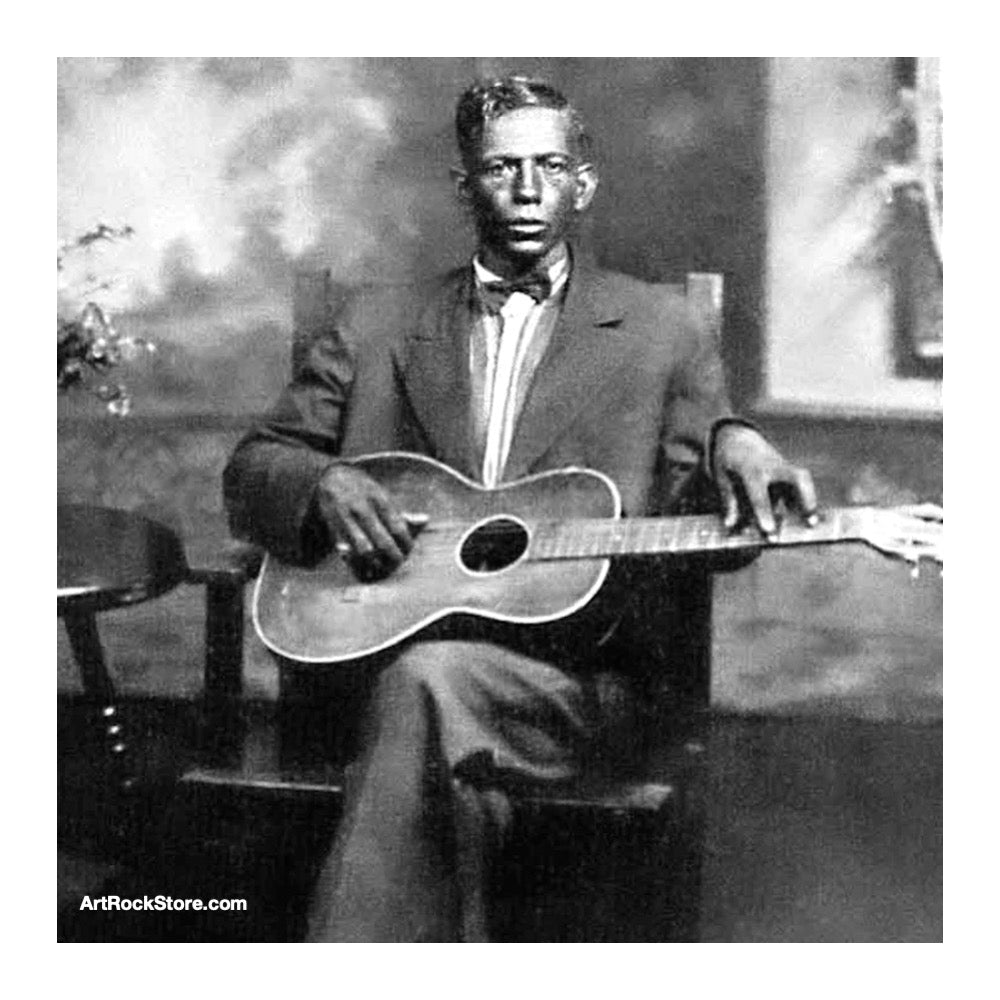
Charley Patton | Artist
Charlie Patton was an American Delta blues musician and songwriter born 1891 in Edwards, Mississippi. Considered by many to be the "Father of the Delta Blues", he created an enduring body of American music and inspired most Delta blues musicians. The musicologist Robert Palmer considered him one of the most important American musicians of the 20th Century. Patton spelled his name Charlie but many sources, including record labels and his gravestone, use the spelling Charley. Patton's parentage and race are somewhat uncertain. His parents were Bill and Annie Patton, but locally he was regarded as having been fathered by former slave Henderson Chatmon. Patton was considered African-American, but because of his light complexion there has been much speculation about his ancestry over the years. One theory endorsed by blues musician Howlin' Wolf was that Patton was Mexican or Cherokee. It is generally agreed that Patton was of Black, White, and Native heritage. In 1897, his family moved to the 10,000-acre Dockery Plantation, a cotton farm and sawmill near Ruleville, Mississippi. There, Patton developed his musical style and performed at Dockery and nearby plantations, influencing many local younger musicians including Robert Johnson, and Chester Burnett (who later became famous in Chicago as Howlin' Wolf). Musicologist Robert Palmer described Patton as a "jack-of all-trades bluesman", who played "deep blues, white hillbilly songs, nineteenth-century ballads, and other varieties of black and white country dance music with equal facility". He was popular across the southern United States and performed annually in Chicago; in 1934, he performed in New York City. He gained popularity for his showmanship, sometimes playing with his guitar down on his knees, behind his head, or behind his back. Patton was a small man, about 5 feet 5 inches tall (1.65m), but his gravelly voice was reputed to have been loud enough to carry 500 yards without amplification; a singing style which particularly influenced Howlin' Wolf. In 1933 Patton settled in Holly Ridge, Mississippi, with his common-law wife and recording partner, Bertha Lee. His relationship with Bertha Lee was a turbulent one. In early 1934, both were incarcerated in a Belzoni, Mississippi jailhouse after a particularly harsh fight. W.R. Calaway from Vocalion Records bailed them out of jail and escorted them to New York City, for what would be Patton's final recording sessions on January 30 and February 1, 1934. Patton died on the Heathman-Dedham plantation, near Indianola on April 28, 1934, of heart failure. His death was not reported in the newspapers and he was buried in an unmarked grave. A memorial headstone was later erected on his grave, paid for by musician John Fogerty from Creedence Clearwater Revival. Between the years 1929-1934 Patton laid down 42 vocal/guitar tracks for Paramount, and a further 10 tracks for Vocalion - all issued on 78RPM 10" Shellac records. Two songs "Oh Death" and "Troubled 'bout My Mother" featured Patton and Bertha Lee as a duet. In addition, Patton provided guitar accompaniment to vocalists Henry "Son" Sims on 4 recordings, and Bertha Lee on 2 recordings. From the 1970's Dixon's recordings have been remastered and reissued on many excellent archival compilations. Standouts include Founder of the Delta Blues (1970), King of the Delta Blues (1991), Complete Recordings 1929-1934 (2002), and Electrically Recorded: Prayer of Death (2009). The Mississippi Blues Trail placed its first historical marker at the cemetery where Patton's grave is in Holly Ridge, Mississippi, in recognition of his legendary status as a bluesman.
Artist Website: wikipedia/Charley_Patton
Featured Albums: Charley Patton
Related Artists: Charlie Patton, Bertha Lee, Howlin' Wolf, Robert Johnson
